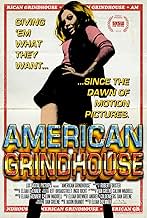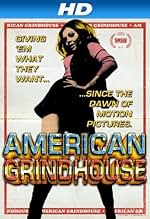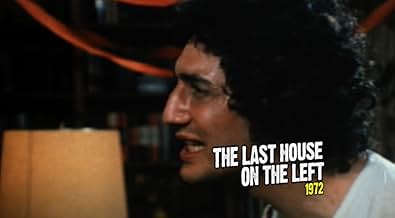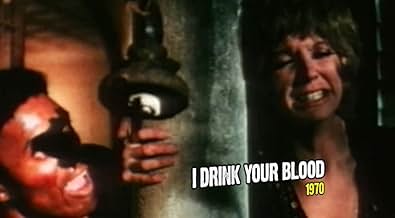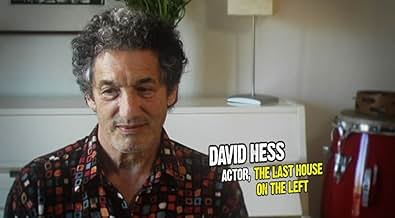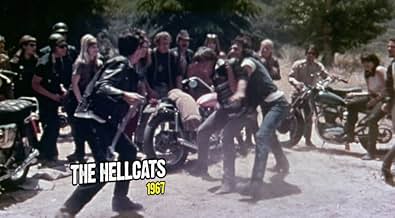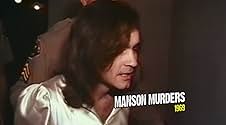IMDb RATING
7.1/10
2.8K
YOUR RATING
A documentary about the history of exploitation movies, from the silent-film era to the 1970s.A documentary about the history of exploitation movies, from the silent-film era to the 1970s.A documentary about the history of exploitation movies, from the silent-film era to the 1970s.
- Director
- Writers
- Stars
- Director
- Writers
- All cast & crew
- Production, box office & more at IMDbPro
7.12.7K
1
2
3
4
5
6
7
8
9
10
Featured reviews
Open-Ended Interviews Quickly Lose Sight of Their Original Subject
About as interesting as a loosely-related series of sparse conversations with cult-favorite directors is likely to get. The goal seems to have been the assembly of a "straight from the horse's mouth" oral history of exploitation at large in cinema, but none of the subjects could really nail down the outer limits of what the term meant. So, instead, it became a crash-course history of underground film, decorated at all corners with vaguely familiar old men reminiscing about their glory days. The narrative jumps all over the place, sometimes floating from the '20s to the '90s over the course of a single sentence - that's OK, though, because the sheer breadth of knowledge and a shared recollection of the crazy promotional stunts each film undertook to get noticed makes the journey worthwhile. It's also one hell of a Netflix recommendation engine.
Enjoyable, Fast, and Informative
American Grindhouse explores the exploitation genres from their inception with Thomas Edison all the way to now(though very briefly). Along the way we get candid, short interviews(more like blurbs) from the likes of John Landis, Joe Dante, Ted V. Mikels, and Herschell Gordon Lewis - just to mention a few. I found the approach, the interviews, and the clips to be very interesting though not much was given to any particular subject. Many faces that should have been on here are notably absent like Roger Corman and Quentin Tarrantino, but that in and of itself should not diminish this look at something that really only lately has received a bit more respect than it is generally accorded. I saw clips of films that I had no knowledge of and will now seek some of those titles out. This is a breezy look at the history of a side of film that gets ignored for having a reputation that the films are garbage. Some without a doubt are,but some are gems. I wish more time had been given to those films. Exploitation films when it is all said and done(can I lace any more clichés through this review?) have stood the test of time better than many, many "mainstream" films.
Makes you wonder if the documentary itself isn't exploitation filmmaking!
'AMERICAN GRINDHOUSE': Four Stars (Out of Five)
A documentary on the history of exploitation films, which are as old as film itself. As the movie points out as soon as man had the power to keep a video recording of things the first thing we naturally wanted to do was record something exploitative. The film is directed by Elijah Drenner (in his feature film debut) and written by Drenner and Calum Waddell. It features interviews with such legendary exploitation filmmakers as John Landis, Joe Dante, Herschell Gordon Lewis, Jack Hill, Larry Cohen, Don Edmonds and many more. The film is narrated by Robert Forster.
The movie follows the history of exploitation film from the turn of the century, when film was invented, to present day and displays a decade by decade examination of it. It intercuts clips from various movies with interviews from different filmmakers, critics and actors discussing them. Some of the earlier clips are the most interesting and shocking. It examines the effects of various things on the industry, like the Motion Picture Production Code as well as the 'Grindhouse' theaters themselves. 'Grindhouse' theaters were movie theaters that almost solely showed exploitation films and usually stayed open all day and night. They were named after the run down burlesque theaters on 42nd Street in New York City. The film follows the history of 'Grindhouse' theaters and the exploitation film industry all the way to it's near extinction in the mid 70's when movies like Steven Spielberg's 'JAWS' finally blurred the lines between indie exploitation and Hollywood films and made exploitation 'B' movies a mainstream excepted thing.
The movie is extremely interesting and educational. It's also very entertaining and never dull. It moves at a remarkably fast pace and finishes in a very quick 80 minute running time. There are a few movies and filmmakers I'm surprised they never touched on, especially considering some of the ones they did, which makes me feel the film is not as complete a film history lesson as it could have been (but then again no movie possibly could be). It is only 80 minutes like I said and I'm sure there were budget restraints as well (It is a very low budget movie itself). The interviews are outstanding and the clips shown are as shocking and disturbing as any movie I've seen. Which makes you wonder if the documentary itself isn't exploitation filmmaking.
Watch our movie review show 'MOVIE TALK' at: http://www.youtube.com/watch?v=CcXJ6wkPwN0
A documentary on the history of exploitation films, which are as old as film itself. As the movie points out as soon as man had the power to keep a video recording of things the first thing we naturally wanted to do was record something exploitative. The film is directed by Elijah Drenner (in his feature film debut) and written by Drenner and Calum Waddell. It features interviews with such legendary exploitation filmmakers as John Landis, Joe Dante, Herschell Gordon Lewis, Jack Hill, Larry Cohen, Don Edmonds and many more. The film is narrated by Robert Forster.
The movie follows the history of exploitation film from the turn of the century, when film was invented, to present day and displays a decade by decade examination of it. It intercuts clips from various movies with interviews from different filmmakers, critics and actors discussing them. Some of the earlier clips are the most interesting and shocking. It examines the effects of various things on the industry, like the Motion Picture Production Code as well as the 'Grindhouse' theaters themselves. 'Grindhouse' theaters were movie theaters that almost solely showed exploitation films and usually stayed open all day and night. They were named after the run down burlesque theaters on 42nd Street in New York City. The film follows the history of 'Grindhouse' theaters and the exploitation film industry all the way to it's near extinction in the mid 70's when movies like Steven Spielberg's 'JAWS' finally blurred the lines between indie exploitation and Hollywood films and made exploitation 'B' movies a mainstream excepted thing.
The movie is extremely interesting and educational. It's also very entertaining and never dull. It moves at a remarkably fast pace and finishes in a very quick 80 minute running time. There are a few movies and filmmakers I'm surprised they never touched on, especially considering some of the ones they did, which makes me feel the film is not as complete a film history lesson as it could have been (but then again no movie possibly could be). It is only 80 minutes like I said and I'm sure there were budget restraints as well (It is a very low budget movie itself). The interviews are outstanding and the clips shown are as shocking and disturbing as any movie I've seen. Which makes you wonder if the documentary itself isn't exploitation filmmaking.
Watch our movie review show 'MOVIE TALK' at: http://www.youtube.com/watch?v=CcXJ6wkPwN0
The Only Film History Lesson You'll Ever Need
Just saw "American Grindhouse" at The Boston Underground Film Festival and loved it. Very insightful, very fast and very funny. I enjoyed that they have a couple of witty female interviewees, as well. I thought I knew a lot of movies - particularly grindhouse a.k.a. exploitation films, but this movie puts it all into perspective for me.
I thought that this documentary would mainly focus on the exploitation most of us think of from the 60's on to present day. I am glad to say that is has a much more interesting approach then just that obvious plot. It starts at the turn of the 18th century at the dawn of cinema, all and while amusing classic clips. It progresses decade by decade comparing more contemporary films to pre code Hollywood. These are things most exploitation fans would never really think of...'Where did the 70s exploit films come from, and what inspired them?' I personally welcome this lesson, and don't worry you get the schlock and gore too! My point? Even if your a 'know it all' go see it, it's academic with a punch line. Now if I can only find all of these amazing movies they talked about.
I thought that this documentary would mainly focus on the exploitation most of us think of from the 60's on to present day. I am glad to say that is has a much more interesting approach then just that obvious plot. It starts at the turn of the 18th century at the dawn of cinema, all and while amusing classic clips. It progresses decade by decade comparing more contemporary films to pre code Hollywood. These are things most exploitation fans would never really think of...'Where did the 70s exploit films come from, and what inspired them?' I personally welcome this lesson, and don't worry you get the schlock and gore too! My point? Even if your a 'know it all' go see it, it's academic with a punch line. Now if I can only find all of these amazing movies they talked about.
Exploits of exploitation cinema
This is a terrific documentary for fans of exploitation cinema and B movies. The documentary charts the history of US exploitation films from the beginnings of cinema to the modern day.
It was Tarantino and Rodriguez that revitalised the term Grindhouse when they made their double feature but it took off in the 1960s with the change of mores and loosening of censorship laws.
It allowed filmmakers to exploit and challenge an area of cinema that was designed for discerning adults that like terror, sex, violence and buckets of blood.
The documentary is narrated by Robert Forster and interviews starts, directors and fans of the genre including Joe Dante, John Landis, Fred Williamson, Larry Cohen, William Lustig, Lewis Teague and others.
However it is not just talking heads, you have clips from grindhouse films and especially a good representation of clips from films of the 1960s and 70s.
It was Tarantino and Rodriguez that revitalised the term Grindhouse when they made their double feature but it took off in the 1960s with the change of mores and loosening of censorship laws.
It allowed filmmakers to exploit and challenge an area of cinema that was designed for discerning adults that like terror, sex, violence and buckets of blood.
The documentary is narrated by Robert Forster and interviews starts, directors and fans of the genre including Joe Dante, John Landis, Fred Williamson, Larry Cohen, William Lustig, Lewis Teague and others.
However it is not just talking heads, you have clips from grindhouse films and especially a good representation of clips from films of the 1960s and 70s.
Did you know
- TriviaJohn Amero, Pam Grier, and Harry H. Novak were all approached to be interviewed in this documentary, but they all declined.
- ConnectionsFeatures Corbett and Courtney Before the Kinetograph (1894)
- SoundtracksThe Thieving Magpie Overture
composed by Gioachino Rossini
- How long is American Grindhouse?Powered by Alexa
Details
Box office
- Gross US & Canada
- $5,529
- Gross worldwide
- $5,529
Contribute to this page
Suggest an edit or add missing content



